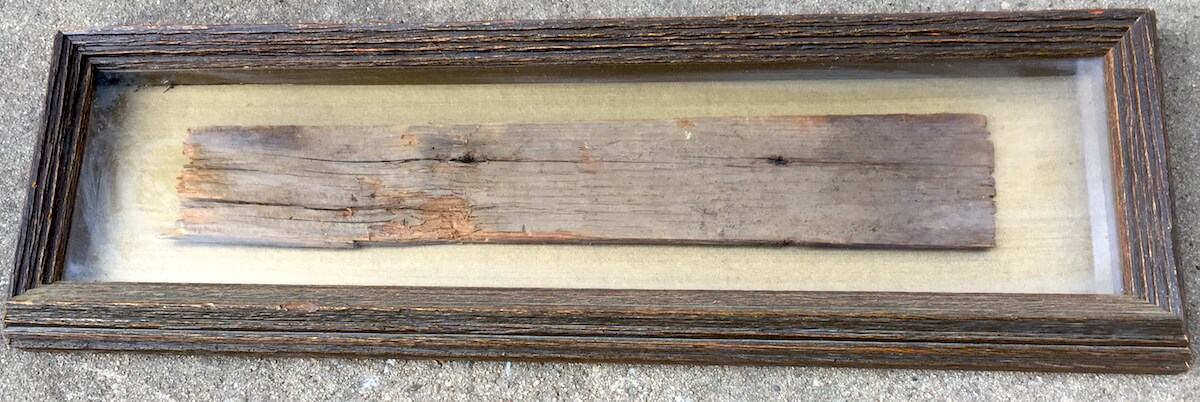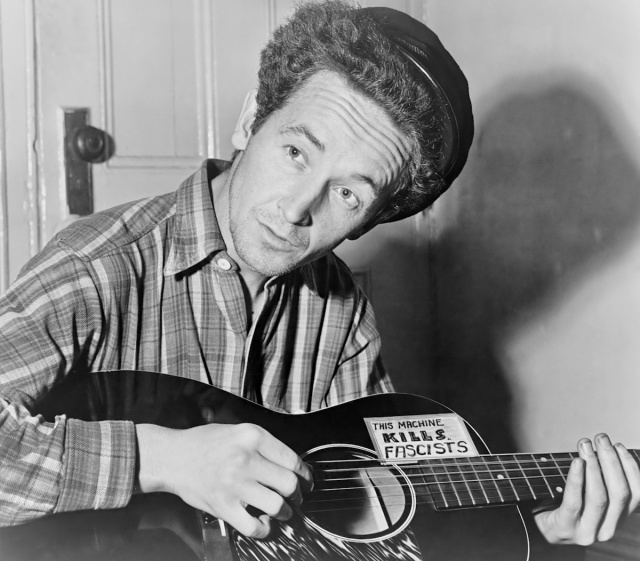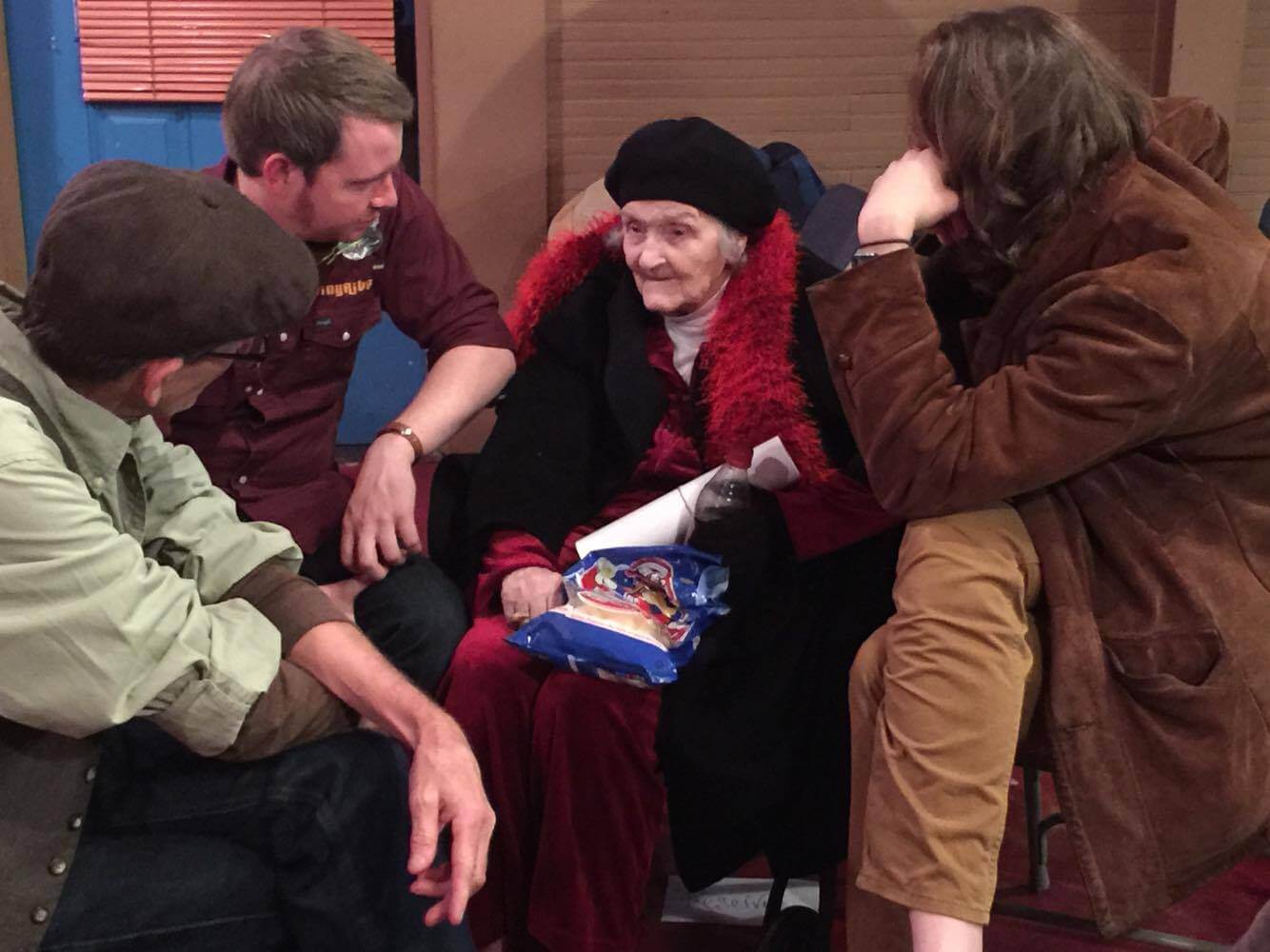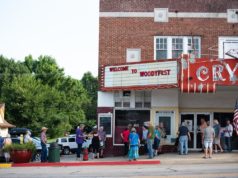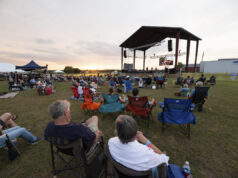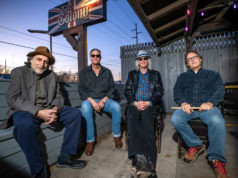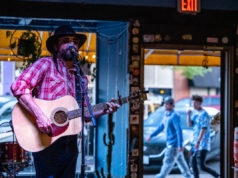Woody Guthrie (1912-1967) was born in Okemah, Okla., to a family that had a fair number of issues well before there was a Dr. Phil to fix ’em. Their maladies included the hereditary disease Huntington’s chorea, which may have made Mother Guthrie try setting her children on fire. Papa Guthrie was in real estate, as they say, and so the family lived in several different houses during Woody’s early years.
The residence most identified with Guthrie was known as the London house, London having been the name of a previous owner. Woody left Okemah when he was around 17 and never returned. The house just stood there while Woody traveled the country and became famous.
Or his words did. He sang them, but not well. It sounded as if he gargled with drain cleaner to start his day. But the words were transcendent. Thanks to Alan Lomax, the hillbilly singer became a “folk” musician, acceptable to the cognoscenti in the concert halls as well as the Depression-weary masses outside on the streets. Folk music became a bigger deal in the late 1950s, and so did Woody Guthrie.
Meanwhile, back in Okemah, the London house deteriorated. On the East Coast, so did Woody. Huntington’s got him. In the early 1960s, a man named Earl Walker bought the London property, hoping to preserve its connection to Woody Guthrie and maybe create a museum or something. A draw for tourists that would profit Okemah.
A dirty commie is a dirty commie
No soap. Too many locals figured Guthrie was just another dirty commie. No need to have that kind of advertising. Walker couldn’t raise the money to repair the house. Hell, the town wouldn’t even tolerate a “Woody Guthrie Corner” in the public library, for folks who wanted to read his published work. A dirty commie is a dirty commie, and to true believers in Okemah it didn’t matter that there was no proof Guthrie even belonged to the Communist Party — or any other party, for that matter.
RELATED
Tribute show highlights Woody Guthrie’s lasting legacy by Danny Marroquin
Civic leaders announced that the abandoned London place was becoming a hangout for winos and teenagers, and as such, was a public nuisance. They did not want to talk about the wandering poets, hippies and assorted admirers who stopped by to write words of appreciation to Woody Guthrie on the crumbling walls, even if they had to step over a wino to do it.
The town did paint “Home of Woody Guthrie” on one of its water towers, visible from Interstate 40, as if it would attract people from the highway to see … nothing.
A town leader told a reporter that the words on the water tower were rendered in gold paint, which cost $50 a gallon. That, he said, should be monument enough for anybody.
Eventually, in the late 1970s, the town forced Walker to tear the place down, but Walker saved the lumber. Not all of it, to be sure. Souvenir hunters took some, and a Marxist anthropologist from the University of Oklahoma claimed to have made off with a cornerstone.
Long story short, the vacant lot outlasted the old farts who said Woody was a commie, and now there are plans to rebuild the London house with the original lumber (or most of it) at a cost of $500,000. That would be 500 times what Guthrie’s father paid for it in the first place.
You’ve got to wonder what Woody would have to say about all of that, don’t you?
